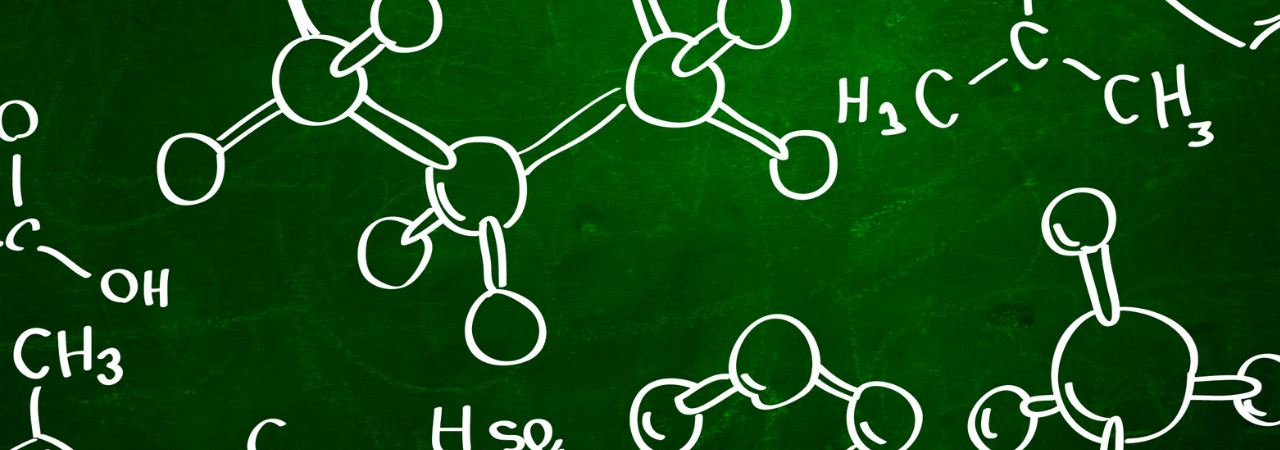CHEM 1A
General Chemistry
General Chemistry
5 units, 3 hours lecture, 6 hours lab, (GR)
Prerequisite: MATH 203 or MATH 211D and CHEM 030A or Satisfactory score on the chemistry assessment or Completion of ALEKS chemistry preparation course.
Recommended Preparation: ESOL 052 or ESOL 052A or ESOL 052B or ENGL 001A or ENGL 001AS or ESOL 252B.
Recommended Preparation: ESOL 052 or ESOL 052A or ESOL 052B or ENGL 001A or ENGL 001AS or ESOL 252B.
Acceptable for Credit: CSU, UC
General principles of chemistry: Measurements, atomic theory, chemical nomenclature, chemical composition, stoichiometry, reactions in aqueous solution, thermochemistry, electron configurations, periodic properties, chemical bonding, gases, liquids, solids, and solutions. 1905.00
AA/AS area 1; CSU area B1, B3; IGETC area 5C, 5A;
(C-ID: CHEM 110; C-ID: CHEM 120S when taken with CHEM 1B)
CHEM 1B
General Chemistry
General Chemistry
5 units, 3 hours lecture, 6 hours lab, (GR)
Prerequisite: CHEM 001A.
Acceptable for Credit: CSU, UC
General principles of chemistry: Kinetics, equilibrium, acid-base equilibria, buffers, solubility equilibria, entropy and free energy, electrochemistry, nuclear chemistry, coordination chemistry, and an introduction to organic chemistry. 1905.00
AA/AS area 1; CSU area B1, B3; IGETC area 5C, 5A;
(C-ID: CHEM 120S when taken with CHEM 1A)
CHEM 10
Chemistry for Liberal Arts
Chemistry for Liberal Arts
3 units, 3 hours lecture (GR or P/NP)
Prerequisite: MATH 210D or MATH 201 or Math higher than Algebra.
Recommended Preparation: ESOL 052.
Recommended Preparation: ESOL 052.
Acceptable for Credit: CSU, UC
Chemistry and Society: Introduction to basic concepts in chemistry with an emphasis on socio-cultural areas where chemistry has a role to support citizenship; applications in health, energy, food, and the environment; introduction to major scientific, technological, and environmental issues that shape society; and concepts that inform decisions as citizens and consumers. 1905.00
AA/AS area 1; CSU area B1;
CHEM 12A
Organic Chemistry
Organic Chemistry
5 units, 3 hours lecture, 6 hours lab, (GR)
Prerequisite: CHEM 001B.
Acceptable for Credit: CSU, UC
Introduction to structures, nomenclature, properties, and reactions of carbon compounds: Hydrocarbons, monofunctional and polyfunctional compounds, emphasis on structures and mechanisms, spectroscopy and other analytical techniques. Laboratory work: Reactions, purification techniques, measurements, qualitative analysis, use of instrumentation. 1905.00
AA/AS area 1; CSU area B1, B3; IGETC area 5C, 5A;
(C-ID: CHEM 150; C-ID: CHEM 160S when taken with CHEM 12B)
CHEM 12B
Organic Chemistry
Organic Chemistry
5 units, 3 hours lecture, 6 hours lab, (GR)
Prerequisite: CHEM 012A.
Acceptable for Credit: CSU, UC
Continuation of CHEM 12A: Reactions of functional groups and interactions of polyfunctional compounds, infrared spectroscopy, nuclear magnetic resonance, mass spectrometry, ultraviolet-visible spectroscopy. Introduction to biochemistry: Lipids, carbohydrates, proteins, nucleic acids. Laboratory work: Reactions, purification methods, measurements, multistep syntheses, qualitative analysis, use of instrumentation. 1905.00
AA/AS area 1; CSU area B1, B3; IGETC area 5C, 5A;
(C-ID: CHEM 160S when taken with CHEM 12A)
CHEM 30A
Introductory General Chemistry
Introductory General Chemistry
4 units, 3 hours lecture, 3 hours lab, (GR)
Prerequisite: MATH 201 or or MATH 210D.
Acceptable for Credit: CSU, UC
Fundamental principles of general chemistry: Metric measurements, matter and energy, atomic structure, chemical nomenclature, chemical bonding, chemical reactions, stoichiometry, gas laws, nuclear chemistry, properties of liquids, solids, solutions, acids and bases. 1905.00
AA/AS area 1; CSU area B1, B3; IGETC area 5C, 5A;
(C-ID: CHEM 101)
CHEM 30B
Introductory Organic and Biochemistry
Introductory Organic and Biochemistry
4 units, 3 hours lecture, 3 hours lab, (GR)
Prerequisite: CHEM 030A.
Acceptable for Credit: CSU, UC
Introduction to basic organic chemistry and biochemistry: Hydrocarbons, organic functional groups, nomenclature and reactions, polymers, carbohydrates, proteins, enzymes, lipids, nucleic acids, protein synthesis, and metabolic pathways. 1905.00
AA/AS area 1; CSU area B1, B3; IGETC area 5C, 5A;
(C-ID: CHEM 102)
CHEM 32
Integrated General, Organic, and Biological Chemistry
Integrated General, Organic, and Biological Chemistry
5 units, 4 hours lecture, 3 hours lab, (GR)
Acceptable for Credit: CSU, UC
Introduction to general, organic, and biological chemistry with applications to health sciences: Matter, measurement, atomic structure, ionic compounds, organic compounds, organic functional groups, chemical reactions, carbohydrates, gas laws, intermolecular forces, lipids, cell membranes, solution chemistry, acids and bases, proteins, enzymes, nucleic acids, and metabolism. 1905.00
AA/AS area 1; CSU area B1, B3; IGETC area 5A;
CHEM 49
Independent Study in Chemistry
Independent Study in Chemistry
.5 – 5 units, .5 – 5 hours lecture (GR or P/NP)
Acceptable for Credit: CSU
UC transferability is determined by UC faculty after transfer, please see a counselor for more information.
In-depth exploration of an area or problem of the student’s choice not covered by regular catalog offerings in Chemistry: Student must obtain approval from an appropriate faculty member. For more details, see the section on independent study in the college catalog. 1905.00
CHEM 201A
Problem Solving for CHEM 1A
Problem Solving for CHEM 1A
1 unit, 1 hour lecture (GR)
Corequisite: CHEM 001A or CHEM 001B.
Problem solving for Chemistry 1A : Essential techniques and approaches to problem solving and study skills that directly support and complement lecture and laboratory material in General Chemistry. 1905.00
CHEM 201B
Problem Solving for CHEM 1B
Problem Solving for CHEM 1B
1 unit, 1 hour lecture (GR)
Corequisite: CHEM 001B.
Problem Solving for Chemistry 1B : Essential techniques and approaches to problem solving and study skills that directly support and complement lecture and laboratory material in General Chemistry. 1905.00
CHEM 274
iEat: Survey Course of Chemistry in the Food Sciences
iEat: Survey Course of Chemistry in the Food Sciences
.5 units, .25 hours lecture, .75 hours lab, (P/NP)
Corequisite: BIOL 272, BIOL 273, CULIN 271.
Introduction to food science with a focus in chemistry of food: Topics including safety, career opportunities and hands-on experience. Part of a four-part series, including: Culinary 271, Biology 272 and 273, and Chemistry 274. 1306.00
CHEM 459A
Occupational Work Experience in Chemistry
Occupational Work Experience in Chemistry
1 – 4 units, 3.43 – 17.15 hours lab, (GR)
Acceptable for Credit: CSU
Course study under this section may be repeated three times.
Supervised employment in chemistry or a related field: Extension of classroom learning to the job site. The employment must be related to the student’s educational or occupational goals. Each 75 hours of paid work equals one unit, while each 60 hours of non-paid work equals one unit. Students can earn at most 16 units through general and occupational work experience courses combined, but may re-enroll in such courses any number of times until the maximum of 16 units is earned. 1905.00




